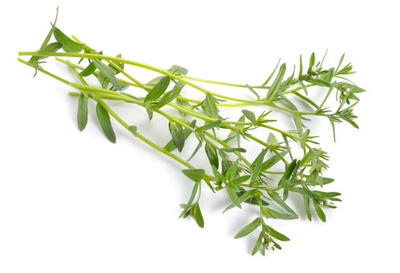
Introduction to Benefits of Cleaver Herb
Step into the world of natural wellness with Cleaver herb! This unassuming plant packs a punch when it comes to boosting your health. With its gentle touch and potent benefits, Cleaver herb is here to revolutionize your well-being journey. Whether you’re a seasoned herbal enthusiast or just dipping your toes into the world of natural remedies, Cleaver herb welcomes you with open arms. Let’s explore the incredible benefits of this humble herb and discover how it can enhance your vitality and radiance. Get ready to embrace the power of nature and unlock the secrets of Cleaver herb!
Brief Description, Origin, and History of Cleaver Herb
Cleaver herb, also known as Galium aparine, boasts a rich history spanning centuries. Originating from Europe, North America, Asia, and Africa, it has garnered attention for its medicinal properties. Its stems and leaves feature tiny hooked hairs, allowing it to cling to surfaces as it grows. Throughout history, cultures worldwide revered it for its diverse health benefits, including detoxification and skin health. Transitioning to modern times, scientific research has validated its traditional uses, propelling it into the spotlight as a potent botanical remedy. Cleaver Herb’s journey from ancient herbal lore to contemporary herbal medicine illustrates its enduring significance.
All About Cleaver Herb for Health
Cleaver herb is renowned for its multitude of health benefits, making it a valuable addition to any wellness routine. Its detoxifying properties support liver and kidney function, facilitating the elimination of toxins from the body. Additionally, it aids in lymphatic drainage and circulation, reducing swelling and enhancing immune function. Cleaver herb’s anti-inflammatory and antimicrobial actions make it a go-to remedy for skin conditions such as eczema and acne. Furthermore, its diuretic properties support urinary tract health, alleviating symptoms of UTIs. Its expectorant qualities provide relief from respiratory ailments like coughs and bronchitis. Overall, Cleaver herb promotes holistic well-being by addressing various aspects of health.
Common Applications of How Cleaver Herb is Used
Cleaver herb offers a variety of applications in herbal medicine, allowing individuals to harness its therapeutic benefits in different ways:
- Brewing Tea: Cleaver herb is commonly brewed into tea, providing a convenient and refreshing way to enjoy its detoxifying properties.
- Creating Tinctures: Tinctures made from Cleaver herb extract offers a concentrated form of its medicinal compounds, allowing for precise dosage and easy administration.
- Preparing Infusions: Cleaver herb infusions can be made by steeping the herb in hot water, releasing its beneficial compounds for consumption.
- Incorporating in Salads: Fresh Cleaver herb leaves can be added to salads for a nutritious boost and a hint of flavor.
- Making Poultices: Cleaver herb poultices, made by applying crushed leaves directly to the skin, can provide relief for minor skin irritations and inflammation.
Tips for Taking Cleaver Herb Effectively
To maximize the benefits of Cleaver herb, consider the following tips for effective usage:
- Start Slowly: Begin with a low dosage of Cleaver herb and gradually increase as needed to assess tolerance and effectiveness.
- Consult a Professional: Before using Cleaver herb, consult with a healthcare provider to ensure it is safe and appropriate for your individual health needs.
- Stay Hydrated: Since Cleaver herb has diuretic properties, it’s important to drink plenty of water to stay hydrated and support proper kidney function.
- Monitor for Side Effects: Pay attention to any adverse reactions or side effects when using Cleaver herb and adjust dosage accordingly.
- Consider Timing: Take Cleaver herb at optimal times of the day to maximize its effects, such as before meals or as part of your bedtime routine.
What are the Characteristics of a Good-Quality Cleaver Herb
Identifying high-quality Cleaver herb ensures you reap its full benefits. Look for the following characteristics:
- Freshness: Choose a Cleaver herb that is fresh and vibrant in color, indicating high potency and efficacy.
- Organic Certification: Opt for organically grown Cleaver herb to avoid exposure to pesticides and ensure purity.
- Full-Spectrum Extracts: Select Cleaver herb products that contain a full spectrum of its medicinal compounds for maximum therapeutic effect.
- Proper Storage: Store Cleaver herb in a cool, dry place away from direct sunlight to preserve its freshness and potency.
- Reputable Source: Purchase Cleaver herb from trusted suppliers or reputable brands known for their quality and integrity.
What are Some Interesting Facts about the Benefits of Cleaver Essential Oil
Cleaver essential oil offers a host of benefits beyond its traditional uses. Here are some interesting facts to consider:
- Aromatherapy: Cleaver essential oil can be used in aromatherapy to promote relaxation, reduce stress, and uplift the mood.
- Skin Care: When diluted, Cleaver essential oil can be applied topically to soothe skin irritations, reduce inflammation, and promote healing.
- Hair Care: Cleaver essential oil can be added to hair care products to nourish the scalp, strengthen hair follicles, and promote healthy hair growth.
- Antimicrobial Properties: Cleaver essential oil exhibits antimicrobial properties, making it useful for disinfecting surfaces and purifying the air.
- Emotional Support: Cleaver essential oil offers grounding and calming effects, benefiting the management of anxiety, depression, and emotional imbalances.
How Can You Create Your Home Remedy with Cleaver Herb
Making your own Cleaver herb home remedies is simple and rewarding. Here’s how to get started:
- DIY Tea: Brew Cleaver herb tea by steeping dried Cleaver herb leaves in hot water for 5-10 minutes, then strain and enjoy.
- Infused Oil: Make Cleaver herb-infused oil by macerating fresh Cleaver herb in a carrier oil such as olive or coconut oil for several weeks, then strain and use topically.
- Tincture: Prepare a Cleaver herb tincture by soaking dried Cleaver herb in alcohol for several weeks, then strain and store in a glass bottle for long-term use.
- Salve: Create a soothing Cleaver herb salve by melting beeswax and mixing it with Cleaver herb-infused oil, then allowing it to solidify in containers for topical application.
How Do You Properly Store and Preserve Cleaver Herb for Long-Term Use
Proper storage is essential for preserving the potency and freshness of Cleaver herb. Follow these guidelines:
- Drying: Dry fresh Cleaver herb thoroughly before storing it in an airtight container in a cool, dark place to prevent moisture and mold growth.
- Freezing: Alternatively, freeze fresh Cleaver herb leaves in ice cube trays with water for convenient portioning and use in recipes or teas.
- Labeling: Clearly label Cleaver herb containers with the date of harvest and expiration to ensure freshness and potency.
- Avoiding Contamination: Keep Cleaver herb away from moisture, heat, and direct sunlight to maintain its medicinal properties.
- Rotate Stock: Regularly check Cleaver herb stock for freshness and use older batches first to prevent spoilage.
Who Should Avoid Cleaver Herb and Any Contraindications
While Cleaver herb offers numerous health benefits, it may not be suitable for everyone. Consider the following contraindications:
- Pregnant or Nursing Women: Cleaver herb may stimulate uterine contractions and should be avoided during pregnancy or while breastfeeding.
- Allergy: Individuals with known allergies to plants in the Rubiaceae family, such as coffee or gardenia, should exercise caution when using Cleaver herb.
- Medical Conditions: People with underlying medical conditions or taking medications should consult a healthcare professional before using Cleaver herb to avoid potential interactions or adverse effects.
- Children: Cleaver herb may not be suitable for young children, as their developing bodies may react differently to its effects.
- Individual Sensitivity: Some individuals may be more sensitive to Cleaver herb’s diuretic or detoxifying effects and may experience adverse reactions.
Practical Tips for Integrating Cleaver Herb into Your Life
Incorporating Cleaver herb into daily routines is simpler than you might think. Start by brewing Cleaver herb tea as a refreshing morning beverage, enhancing your detoxification efforts. Transition to using Cleaver herb-infused skincare products to soothe skin irritations and promote healing. Additionally, consider incorporating lymphatic massage techniques using Cleaver herb-infused oils to support lymphatic drainage and circulation. Detoxify your body further by adding Cleaver herb supplements to your regimen, ensuring optimal liver and kidney function. Finally, indulge in herbal baths with Cleaver herb-infused products to relax muscles and promote overall well-being. By integrating Cleaver herb into various aspects of your life, you can harness its therapeutic benefits effortlessly.
Conclusion
In conclusion, Cleaver herb emerges as a versatile and potent botanical remedy with a rich history and myriad health benefits. Transitioning from ancient herbal practices to modern herbal medicine, Cleaver herb continues to captivate with its therapeutic properties. By incorporating Cleaver herb into daily routines, individuals can experience enhanced detoxification, lymphatic support, skin health, and respiratory wellness. Its gentle yet effective nature makes it suitable for individuals seeking natural solutions for their health needs. Embracing Cleaver herb as a part of one’s wellness journey invites a deeper connection with nature and a holistic approach to health and vitality. Unlock the potential of Cleaver herb and embark on a path to wellness and balance.
FAQs about Benefits of Cleaver Herb
- Is Cleaver herb safe to use?
- Yes, most individuals can safely use Cleaver herb when used appropriately. However, it’s essential to consult with a healthcare professional before using Cleaver herb, especially if you have any underlying health conditions or are pregnant or nursing.
- What are the common ways to use Cleaver herb?
- People commonly use Cleaver herb in various forms, including teas, tinctures, topical creams, and poultices. You can also incorporate it into salads, soups, and other culinary dishes for added flavor and nutritional benefits.
- Can Cleaver herb help with detoxification?
- Yes, Cleaver herb helps with detoxification by supporting the body’s natural detox processes, aiding liver and kidney function, and promoting the elimination of toxins.
- How long does it take to see results from using Cleaver herb?
- The timeline for experiencing the benefits of Cleaver herb may vary depending on individual factors such as dosage, frequency of use, and overall health status. Some people may notice improvements in symptoms within days, while others may require several weeks of consistent usage.
- Can Cleaver herb be used during pregnancy?
- Pregnant women should avoid using Cleaver herb, as it may stimulate uterine contractions and potentially pose a risk to the pregnancy. It’s best to consult with a healthcare provider before using any herbal remedies during pregnancy.
- Does Cleaver herb interact with medications?
- Cleaver herbs may interact with certain medications, particularly those with diuretic effects or that affect blood clotting. It’s crucial to consult with a healthcare provider before using Cleaver herb, especially if you are taking prescription medications.
- Is Cleaver herb safe for children?
- Most adults can safely use Cleaver herb when used appropriately. However, it’s essential to exercise caution when using Cleaver herb with children, as their smaller bodies may react differently to its effects. It’s best to consult with a pediatrician before giving Cleaver herb to children.
- Where can I purchase Cleaver herb products?
- You can purchase Cleaver herb products, including dried herbs, tinctures, and teas, at health food stores, herbal apothecaries, and online retailers specializing in herbal remedies. It’s essential to choose reputable suppliers known for their quality and integrity.
